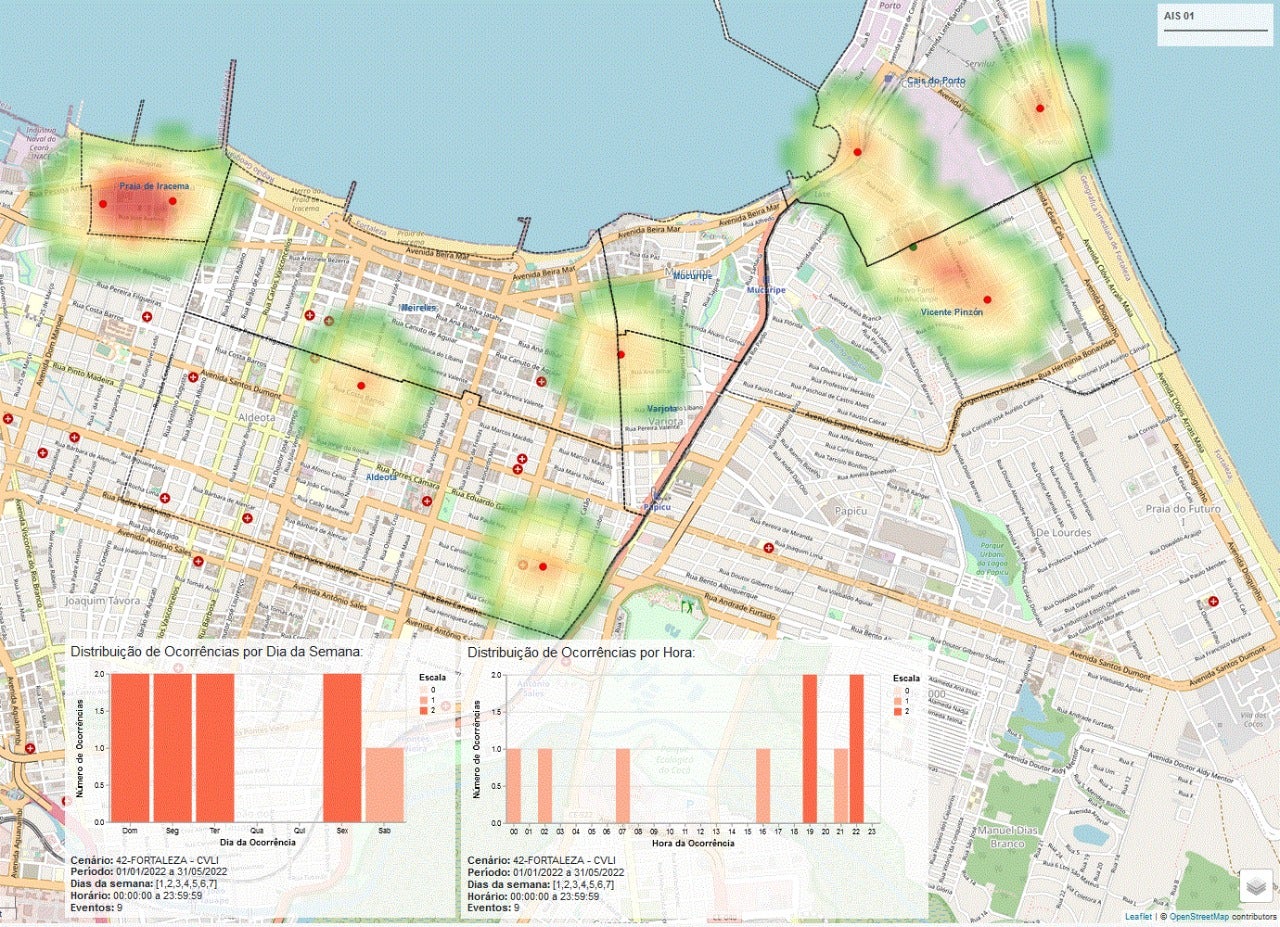In Latin America and the Caribbean, as in the rest of the world, crime is highly concentrated in spatial terms. On average, in the region's cities, 50% of crimes occur in 2.5% of street segments.
In this context the Hot Spot Policing has been gaining more and more relevance as a possible response, for two reasons: i. because it focuses precisely on patrolling street segments with a higher concentration of crime; ii. Because has proved effective to reduce the incidence of different types of crime.
Despite this, the experiences and evidence of this police approach come from developed Anglo-Saxon countries, while in Latin America and the Caribbean they are limited to a few cases, such as Argentina, Colômbia and Uruguay.
In order to broaden the evidence base in the region, the Inter-American Development Bank (IDB), launched, in 2022, a public notice aimed at Brazilian Municipal Guards (GMs) and Military Police (PMs) who were interested in adapting, applying and evaluating hot spot policing strategies in their states and municipalities. The aim is to produce studies that can answer whether this type of program actually works in the country, for what types of crimes and under what conditions.
Of the more than 20 PMs and GMs who expressed an interest, seven were selected to take part:: The PMs of Paraná, Minas Gerais and Ceará and the GMs of Niterói-RJ, Canoas, Florianópolis and Fortaleza. Todas elas participaram de um Evidence-Based Policing Center course, of the United Kingdom.
Through a partnership with the Getúlio Vargas Foundation's Center for Science Applied to Public Security (FGV/CCAS), support was given to the selected organizations that had the best conditions for structuring interventions and impact assessments.
In March of this year, after several months of joint training and analysis, the Public Security Secretariat and the Paraná Military Police were able to start what will be the first randomized controlled experiment on hot spot policing in Brazil. The first results are expected by the end of the year. At the same time, progress is being made with the other participating organizations.
Follow the Public Security & Justice Evidence Platform to stay informed about the development of this project and the dissemination of these impact assessments.

